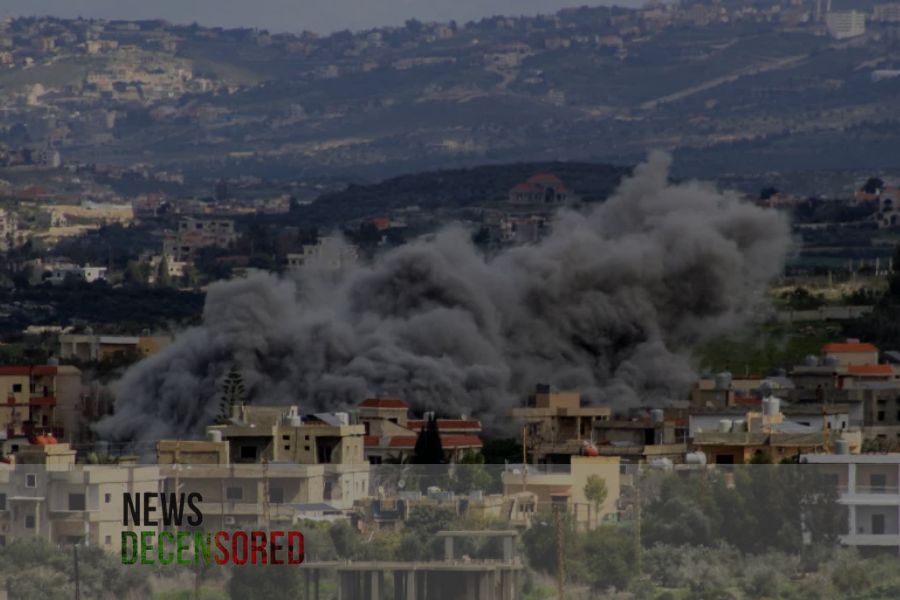At a time when Israel is preparing for an Iranian response to the bombing that targeted the Iranian consulate in Damascus, Hezbollah announced today, Friday, the launch of more than 50 Katyusha rockets toward northern Israel.
The Israeli newspaper Haaretz reported that there were no reports of casualties as a result of the bombing. On the other hand, Lebanese media reported Israeli aircraft flying over areas in the capital, Beirut.
This missile attack comes hours after American officials expected an Iranian attack on Israel today, Friday, with dozens of missiles and more than 100 drones.
They explained that Iran is expected to launch a major attack on Israel today, in which it may use more than 100 drones and dozens of missiles against military targets inside Israel, according to what CBS reported.
The two officials, who were not named by the news network, said that confronting an attack of this size would be difficult for the Israelis. Still, they indicated that Tehran might launch a smaller-scale attack to avoid a significant escalation.
While officials familiar with Western intelligence assessments reported that the strike could occur within 48 hours and target government sites with missiles, they added that the bombing could occur with drones and precision missiles.
The sources said that the United States is preparing defenses and has transferred additional military assets to the region while intensifying diplomatic efforts to curb hostilities.
Bloomberg also indicated that this step still needs to be approved by senior officials in Tehran.
This came after other sources suggested that “Iranian retaliation” would take place within three days or 48 hours.
It also came amid both Israeli and American alert and military meetings between Israel and the United States.
Since the painful blow that Tehran received by targeting its consulate in early April, which led to the killing of Brigadier General Mohammad Reza Zahedi, commander of the Quds Force in Syria and Lebanon, and his deputy, Mohammad Hadi Rahimi, and five officers accompanying them, the statements and threats of revenge and response from Iranian officials have escalated.
While America, Israel’s ally, was active in conveying messages to Iranian officials about non-escalation.
In turn, Iran sent messages to the United States that its strike might be limited and deliberate so that it would not necessitate an escalation of the war.
A statement issued by Hezbollah stated that at sunset on Thursday, a barrage of Katyusha and Burkan rockets was launched toward the Israeli villages of Goren and Shlomi. Hezbollah’s Al-Manar TV said the group had not previously fired Burkan missiles at civilian targets but was now responding to the recent wave of Israeli air strikes.
Lebanese official media reported that ten paramedics were among those killed on Wednesday. The Israeli army said it struck targets belonging to Hezbollah and a Sunni group allied with it.
Hezbollah has frequently used Russian-made Kornet portable anti-tank missiles recently. In rare cases, he used Burkan missiles that could carry a warhead weighing up to 500 kilograms.
Hezbollah says that its attacks aim to keep some Israeli teams busy and away from Gaza, and Hezbollah leader Hassan Nasrallah has previously confirmed that attacks on the border will not stop until Israel stops its attack on Gaza.
For its part, the United Nations peacekeeping force in southern Lebanon, UNIFIL, stressed the need to “stop the escalation immediately” and urged “all parties to lay down their weapons and begin the process towards a sustainable political and diplomatic solution.”















